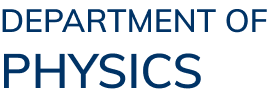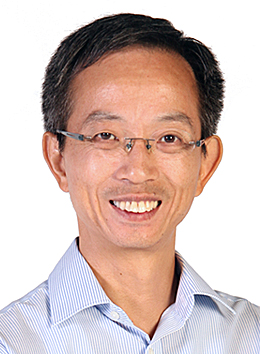Prof. Pak Wo LEUNG was appointed Dean of Students on January 1, 2025.
Prof. Leung is currently Professor of Physics. Before being appointed Dean of Students, he was Associate Dean (Undergraduate Studies & Student Affairs), and Director of Office of Academic Advising and Support in the School of Science. He earned his Bachelor of Science with First Class Honors from The University of Hong Kong in 1984, followed by his PhD in Physics from Cornell University, USA in 1990. He joined HKUST in 1992 as a faculty member and progressed through the ranks of Associate Professor in 1998 and full Professor in 2008.
Prof. Leung's research focused on large-scale numerical studies of strongly correlated electron systems. He has extensive experience with supercomputing, ranging from vector supercomputers like Cray and IBM systems to early massively parallel computers such as the Thinking Machines CM-2. He successfully utilized the Intel Paragon supercomputer at HKUST to investigate the interaction among charge carriers in a microscopic model for high-temperature superconductors. Subsequently, he developed more cost-effective solutions by using clusters of PC servers instead of expensive supercomputers for his own research.
Prof. Leung is a dedicated educator and administrator with extensive knowledge and hands-on experience in student matters. During his 30+ years with the University, he has made exemplary contributions to teaching, academic program development and student affairs, which was recognized by multiple teaching awards, including the School of Science Teaching Award (2004) and Michael G. Gale Medal for Distinguished Teaching (2007). He was elected by students as one of the Best Ten Lecturers at HKUST in 2006, 2007, 2012, 2013 and 2014, and was nominated to be one of the UST Great Minds in 2011 and 2016. Prof. Leung led the development of International Research Enrichment Program in 2013, an elite program aiming at attracting top students with exceptional academic quality interested in pursuing a career in scientific research. Many graduates of this program pursue PhD degrees in world renowned universities. Additionally, he founded the BSc program in Data Analytics in Science in 2021 that offers students a choice of non-traditional science programs and trains students in data analytics with a chosen science subject as the training ground. In his capacity as Director of these programs since their inception, Prof. Leung continues to oversee and drive their ongoing development and refinement to better meet the student needs.
Since becoming the Associate Dean of Science in 2012, Prof. Leung has led a team that provided a wide range of support and services to students, aimed at promoting personal enrichment and well-being, social skills, intercultural awareness, and lifelong planning and career development. He has played a critical role in facilitating and enhancing coordination with academic departments and various teams within the Dean of Students Office on student care, adjustment, and development to fulfill the mission of integrating academic advising with career development and personal enrichment.
Professor Leung's research interest is in the application of large scale and parallel computing to condensed matter physics, including low-dimension quantum spin systems and high temperature superconductivity.
Representative Publications
-
“Quantum phase transition induced by Dzyaloshinskii-Moriya interactions in the kagomé antiferromagnet”, O. Cepas, C.M. Fong, P.W. Leung, C. Lhuillier C, Physical Review B 78, 140405 (2008).
-
"Magnon dispersion and anisotropies in SrCu2(BO3)2", Y. F. Cheng, O. Cepas, P. W. Leung, T. Ziman, Physical Review B 75, 144422 (2007).
-
"Charge carrier correlation in the electron-doped t-J model", P.W. Leung, Physical Review B 73, 75104 (2006).
-
"Hole correlation and antiferromagnetic order in the t-J model", P.W. Leung, Physical Review B 73, 14502 (2006).
-
"Absence of hole pairing in a simple t-J model on the Shastry-Sutherland lattice", P.W. Leung and Y. F. Cheng, Physical Review B 69, 180403-1-4 (2004).
-
"Asymmetry in the hole-doped and electron-doped t-J model", P.W. Leung, International Journal of Modern Physics B 17, 3367-9 (2003).
-
"Low-energy spectra in t-J-type models at low doping levels", W.C. Lee, T.K. Lee, C.M. Ho and P.W. Leung, Physical Review Letters 91, 057001 (2003).
-
"A numerical study of the staggered-flux and chiral orders in the t-J model", P.W. Leung, Physica C 364-365, 117-19 (2001-2002).
-
"Low energy states with different symmetries in the t-J model with two holes on a 32-site lattice", P.W. Leung, Physical Review B 65, 205101 (2001-2002).
-
"A model of pairing enhanced by stripelike correlations", S. Basu, R.J. Gooding and P.W. Leung, Physica B 312-313, 51-2 (2001).

